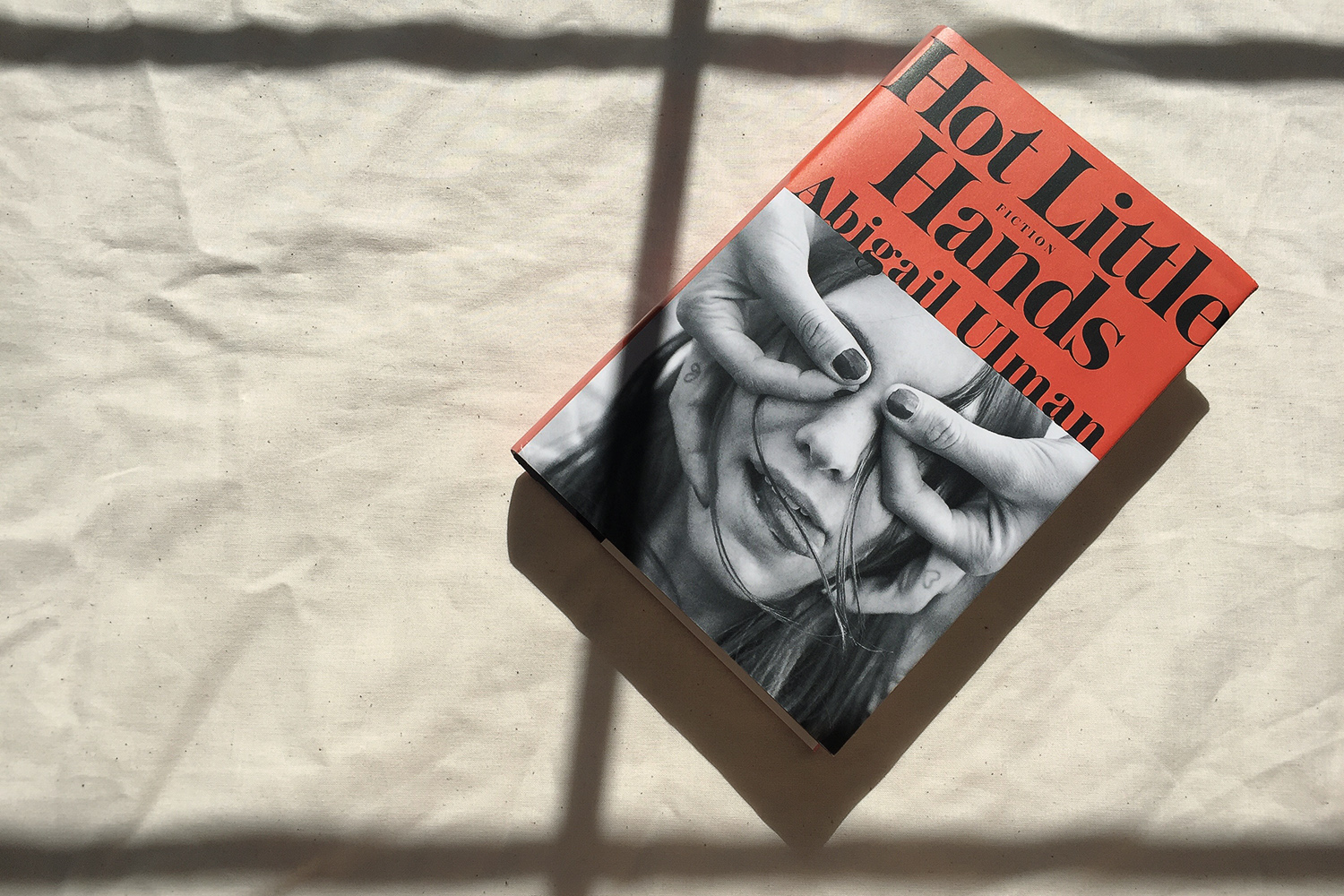
Things feel familiar in Hot Little Hands——boys smoke cigarettes but taste like candy when you kiss them, girls tell secrets by flashlight at sleepovers, best friends go away to horse camp——and I’m not sure if they feel familiar because I’ve read them before or simply because they are classic girlhood relics (an imaginary girlhood, unlike my own but that of a more intrepid friend).
Hot Little Hands (Spiegel & Grau, 2016) by Abigail Ulman holds nine stories, all of them starring girls keen on making sense of their lives. The oldest is 27-year-old Claire, who in three loosely connected stories meanders San Francisco with friends who have painfully hipster tattoos, work at coffee shops, drink, have sex and well, hang out. In “The Withdrawal Method,” Claire learns she is pregnant, decides to get an abortion and then goes about the next few days bringing it up in conversation. A guy asks, “Are you really pregnant?” to which she responds, “Yep, for a limited time only.” Abortion is treated so casually, as a simple matter-of-fact, that it is in turn both refreshing and disturbing, at times hilarious. Abortion is a sensitive subject, often shrouded in so much secrecy and judgement, that to highlight it within such a light, funny, kind of aimless story feels different, and I like that. The setting is San Francisco, a city that a non-native like myself can never truly master so must seize every opportunity to learn more, like taking note of streets, neighborhoods and landmarks referenced in fiction. Elizabeth Percer’s All Stories Are Love Stories is another recent mini-lesson in San Francisco that I enjoyed.
My favorite story of this collection, “Same Old Same As,” is also perhaps the most serious. The story ends quietly, so when you reach it there is nothing to do but shrug and move on, though you really don’t want to move on. We meet ninth-grader Ramona in the middle of therapy discussing sexual abuse. The subject matter is difficult but handled in the pitch-perfect voice of a smart, blunt yet vulnerable teenage girl. Details are carefully doled out, hardly explicit. Reprieve comes from Ramona’s friends, who take her story of abuse seriously and treat her kindly in the way young girls do, bringing her cupcakes and making excuses so she doesn’t have to participate in class. The story makes it clear that it is the adults and institutions that fail her. The final scene has Ramona curled up on the couch watching TV with her family, including her stepfather, meaning there has been no justice, no resolution, and it is quietly heartbreaking.
The best thing about every one of these stories is the ending, which may not sound favorable but in fact reflects how memorable each one is. Clean and tidy endings are rare in real life yet easy to expect in fiction, and these stories startle because they do not offer them. There are endings with last-minute plot twists that leave you bewildered, and there are endings that simply peter out, which are strangely the most surprising of all, as if we really do expect happily ever after, or at least closure. Instead, one moment rolls into the next, then the next, and then the next, until a day is strung together, a day-to-day, a life, a bunch of loose ends untied.


Definitely giving this a read! thank you for sharing.
Sophie | http://www.stambroiseblog.com
Sounds interesting! Adding it to my Summer to-read list!
K.
justlittleobsessions.wordpress.com
Sounds like my kind of book!
http://sunovereden.blogspot.com/
adding this to my list right away. can’t wait to read/